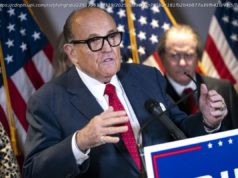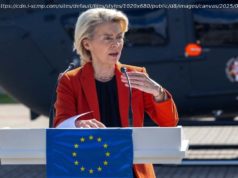In a letter to employees Tuesday, Musk said a final decision had not yet been made and that the proposal would ultimately need final approval from a shareholder vote.
Tesla chief Elon Musk stunned investors Tuesday when he tweeted that he was considering taking the company private, sending its stock soaring more than 7 percent before trading was halted.
Musk said he had «funding secured» to take the all-electric automaker private at $420 a share, far above its current $360 stock price. That would value the company — already the United States’ most valuable automaker — at more than $70 billion.
Tesla shares were halted at 2:08 p.m. in advance of pending news and were set to resume trading at 3:45 p.m.
In a letter to employees Tuesday, Musk said a final decision had not yet been made and that the proposal would ultimately need final approval from a shareholder vote. Current shareholders, Musk wrote, could stay investors in a private Tesla or be bought out at $420 a share, or a 20 percent premium to its stock price last week.
The letter offered no details on where Musk would get the tens of billions of dollars needed to buy out shareholders and take the company private.
Musk’s tweet was an exceedingly rare way to break potentially monumental news. Public companies often halt trading in their stock and file official releases before making similar statements so as to minimize market jolts and abide by guidance from the Securities and Exchange Commission.
The sudden announcement gained immediate criticism from former regulators who suggested it may conflict with SEC rules for market-moving statements. Harvey Pitt, a former SEC chairman, told CNBC on Tuesday that Musk’s tweets «might constitute fraud if any of the facts he disclosed are not true» or if there was any indication he had floated the proposal purely to boost the stock price.
The company did not respond to requests for comment.
But Musk continued to tweet, adding, «I don’t have a controlling vote now & wouldn’t expect any shareholder to have one if we go private. I won’t be selling in either scenario.» (Musk owns approximately 20 percent of Tesla.)
Musk said there would be «no forced sales» of stock and that it «will be way smoother & less disruptive as a private company,» adding that it would end «negative propaganda from shorts.» Musk also responded «yes» when a Twitter user suggested taking the company private would save «a lot of headaches.»
He tweeted that there would be «no change» to his role as chief executive and added that his «hope is *all* current investors remain with Tesla even if we’re private.» «Shareholders could either to sell at 420 or hold shares & go private,» he said.
Musk has long voiced annoyance with the public markets, where the company is beholden to investors and must report quarterly on its losses. The automaker is also the most shorted on Wall Street, with many investors betting the company will fail.
Musk’s tweet came shortly after the Financial Times reported the state investment fund of Saudi Arabia had accumulated a stake of up to 5 percent in the company, making it one of Tesla’s biggest shareholders.
Gene Munster, the managing partner of venture-capital firm Loup Ventures, said Tuesday that he estimated «there is a 1 in 3 chance he can actually pull this off and bring Tesla private» because the higher share price «may not be high enough to incentivize existing shareholders to support the sale.»
Munster also said he did not see legal risk from Musk’s tweets because of the Reed Hastings Rule, an SEC guideline announced in 2013 that said it was OK for companies to reveal key information on social media as long as investors have been alerted.
The company said last week that it had burned more than $700 million in cash during the second quarter but made roughly $4 billion in revenue amid increased production of its new Model 3 sedan. Musk said the automaker, which has never made an annual profit, would be profitable by the second half of the year.
Tesla has about $10 billion in outstanding debts and about $2 billion in cash reserves, but Musk has asserted in recent months that the company would have no need to raise new funds. «Are we running low on money? The answer is no,» Musk told investment analysts last week.
It is far from the first time Musk has dropped a financial bomb to his 22 million Twitter followers. On April Fools’ Day, amid growing concerns about the company’s cash stockpile, Musk joked via tweets that Tesla had gone «so bankrupt you can’t believe it.»
Musk has long waged war against the short sellers betting the company’s value will plummet. Over the weekend, he tweeted a video parody that cast Adolf Hitler as a short seller flying into a rage at Tesla’s recent financial reports. «Dang, turns out even Hitler was shorting Tesla stock . .» Musk tweeted.
Musk originally brought Tesla public in 2010 to help raise funds for the company’s growth.
Going private would ease the pressure on the embattled company as it works toward what Musk has promised would be sustainable profits. It would also remove key disclosure and reporting requirements that have forced Musk to regularly explain and defend the company to analysts, investors and journalists.
Musk’s other companies specializing in private spaceflight and underground supertrains — SpaceX and The Boring Company — remain private, and Musk has shown reluctance about opening them to the public markets. In 2013, he emailed SpaceX employees that he was «hesitant to foist being public» on the company «given the long term nature of our mission.»
The oil-rich kingdom of Saudi Arabia, now led by crown prince Mohammed bin Salman, has shown a key interest in flashy technological investments. The Saudi wealth fund said last year it would invest $1 billion in the private space companies run by Virgin Group founder Richard Branson.
—
Author Information:
Drew Harwell is a national technology reporter for The Washington Post specializing in artificial intelligence and big data.
Домой
United States
USA — Political Tesla suspends shares after Elon Musk tweets he wants to take the...






